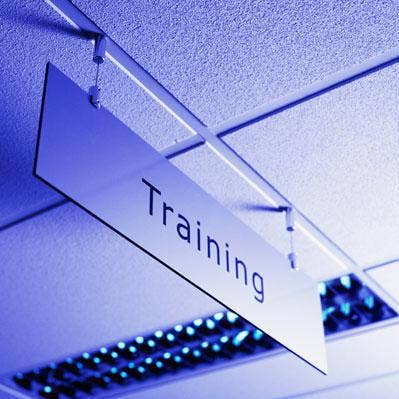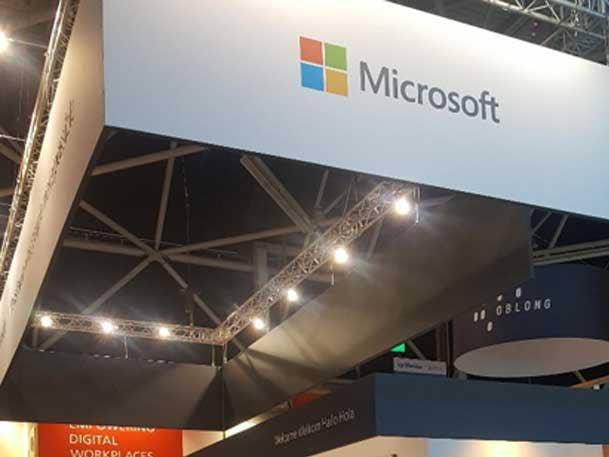Dell Technologies Takes On IT Skills Gap, Levels Up Partners In Azure, M365, Dynamics
‘So if you look at that channel organization from a services perspective, they’re all different. Some are small partners that have been selling Dell hardware for a long time and don’t have those capabilities. Or we have big global systems integrators that are partners that have tremendous professional services skills, but they may not have a relationship with Microsoft around something like Azure Stack HCI,’ says Mark Cabot, senior director of Dell services and strategic parterships.

Dell Technologies is leaning into its 35-year relationship with Microsoft to bring four categories of professional consultancy services to the market that can help its partners tackle deals that might be beyond their skill level.
The offerings are built around Microsoft’s multi-cloud, apps and data, resiliency and security, and modern work, with experts in each category who can give partners a place to run when a prospect or customer wants to deploy solutions outside the partner’s comfort zone.
“I think that’s one of the things that we’re excited about—we’ve heard from channel partners ... there are skills and capabilities that we can bring to bear to help them drive outcomes for their customers and broaden out their capabilities as well and help them bring a broader set of solutions to their customers,” said Dell’s Scott Bils, vice president of product management with Dell Professional Services. “So we’re excited.”
[RELATED: Dell Sales Boss Bill Scannell: ‘Build Credibility’ With Partners ‘Then We Win’]
Bils’ team created the new services, which are built on the decades-long ties between Dell and Microsoft, according to Mark Cabot, senior director of Dell services and strategic parterships.
“The deep relationship we have with Microsoft goes back 35 years,” Cabot said. “We’ve worked very closely with them to develop a lot of these services, and Microsoft has recognized us from our competency certifications and recently with a number of awards as well.”
All of the offers that Dell has debuted were developed with Microsoft also sitting at the table, testing and validating the ideas, he said. One of the most in-demand services has been the Azure Stack HCI, which lets customers take an application written for the public cloud and bring it back on-premises, he added.
“It might be that there’s a lot of processing compute power that needs to happen at the location very quickly,” Cabot said. “It’s expensive to take a bunch of data, push it to the public cloud processes there and bring it back down.”
As more companies optimize workloads for the most cost-effective and operationally sound compute, partners are asked to take on increasingly complicated tasks, he said. Dell’s services deal with Microsoft lets partners provide customers with the best data ecosystem for their needs.
“We’ve seen it in mining companies that need to analyze different data and do it quickly,” Cabot said. “They’re saying, ‘Hey, let’s put that on the edge. We can process it there. That is a more efficient way of doing it. But we can take all that code that we’ve written for the public cloud and run it on-premises.’ So that’s something that I would say, if you just sort of asked what’s new and exciting to me, that’s pretty exciting stuff.”
One area that Dell said it can help with is driving a return on Microsoft tools such as M365 and Dynamics to help organizations get the most from the products.
“One thing I will mention that’s really interesting and exciting about what we’re doing here is introducing these new subscription- based offers for Azure, for M365 and for Dynamics, where they’re based on kind of monthly or three-year terms and it provides access to our subject matter experts that can help organizations get the most out of all subscriptions and help to optimize ROI,” Bils said.
Cabot said this approach fills several knowledge gaps that stop Microsoft from reaching customers and partners from winning Microsoft deals.
“So if you look at that channel organization from a services perspective, they’re all different. Some are small partners that have been selling Dell hardware for a long time [and] don’t have those capabilities,” he said. “Or we have big global systems integrators that are partners that have tremendous professional services skills, but they may not have a relationship with Microsoft around something like Azure Stack HCI.”

What I hear a lot not just from Dell but in the solution provider space is the dire need for talent and the skills gap. It really seems like this is just designed to address that. I know it’s focused on Microsoft, but I’d love to get your thoughts on that.
Bils: It’s interesting. We recently did a survey with Forrester with IT decision-makers and what we heard back was that 76 percent said that they need external help around technology to drive innovation and to drive the outcomes they are looking for. I think one of the biggest reasons is exactly what you’re talking about there—that skills gap.
So we’re excited about the professional services we’re bringing to bear here. We think that it’ll absolutely help customers that are facing those types of challenges as well as help them accelerate outcomes around the four major transformation areas we are focused on—multi-cloud, apps and data, resiliency and security, and modern workforce.
On the solution provider side and the partner side, being able to give them a chance to meet the opportunities that they see in the field but maybe they don’t have the experience to implement back at the shop—is that some of what this is about?
Bils: Absolutely. So there’s a couple of areas where we absolutely are bringing skills that partners and solution providers can leverage—Azure Stack HCI and helping customers implement and stand that up, make it part of their broader multi-cloud strategy, help them migrate in containers and workloads to Azure Stack HCI and Azure hybrid.
Cyber recovery is another area where we’ve done a lot of work over time in professional services and helping customers protect [themselves] from ransomware and cyberattacks and helping them maintain continuity recovered from that. That’s another area [where] I think we bring a really unique set of skills.
But absolutely, I think that’s one of the things that we’re excited about is you what we’ve heard from channel partners around the fact that there are skills and capabilities that we can bring to bear to help them drive outcomes for their customers and broaden out their capabilities as well and help them bring a broader set of solutions to their customers. So now we’re excited.

On the managed services side of course there’s always the grumbling or at least the fear among partners given there’s some overlap between some of the work that you folks do and some of the work that some of your channel partners do. How do you go about avoiding the appearance of conflict and reassuring them, ‘This is about making your business better, not about taking business away from you?’
Bils: Just a quick clarification. So the majority of what we’re talking about and introducing with this announcement—our professional services are probably more on the consulting and advisory side but there are some on the managed side as well, but the bulk of it is more on the consulting and advisory side.
In terms of where we decided to focus and build these offers out, it’s totally based on what we’re seeing and hearing from customers and channel partners in the market. Where they have gaps, where they’re looking for help and broadening out their portfolios, that whole view is really what shaped our perspective and strategy for launching these new offers.
We’ve had a set of Microsoft consulting offers for quite some time, but we saw rapid acceleration and growth in that professional services business for us last year and wanted to expand the portfolio out to help our customers and channel partners drive the outcomes they’re looking for from Microsoft solutions.

Dell worked with Microsoft to develop this offering, is that right? How does that partnership set this offer apart?
Cabot: These announcements we’re making are representative of the deep relationship we have with Microsoft that goes back 35 years. We’ve worked very closely with them to develop a lot of these services, and Microsoft has recognized us from our competency certifications and recently a number of awards as well so I can add some of that perspective.
Part of it is that we have this tight relationship that is very unique to any other partner Microsoft has. No other partner is an OEM the size we are. An ISV, an LSP CSP business, a systems integrator, an education partner—we have all those routes to market and participate in that with the Microsoft community. So partners that are Dell partners may not have those same types of relationship with Microsoft. We can help package up some of these solutions and offerings that we can sell through our channel as well.
So if you look at that channel organization from a services perspective, they’re all different. Some are small partners that have been selling Dell hardware for a long time and don’t have those capabilities.
Or we have big global systems integrators that are partners that have tremendous professional services skills, but they may not have a relationship with Microsoft around something like Azure Stack HCI, which is still a new product. It’s developing and we have a very tight integration with them as we develop that. So we’re selling services around it and the GSI [global systems integrator], for example, would be selling services in complement to that.
All the offers that Scott’s team has developed, we had Microsoft sitting at the table with us, validating our approach, validating the market, validating our technical architecture and the way we approach things.
To get all those solution designations that I was talking about, whether it be around Azure or modern work or even Dynamics, you have to not only have the certified people, you have to have customers that are willing to validate it and say, ‘Yes, Dell knows what they’re doing. They’re doing this work.’ The advanced specializations we just recently received around Azure hybrid, I think there are maybe three or four partners in the world that have that advanced specialization. It’s a grueling audit going through deliverables and our testing approach to show we’re not just faking it.
We have that to bring to bear.

This seems to have found a place where a lot of solution providers can come to find a new route to market through Microsoft and Dell, is that right?
Cabot: Well, if you look at something like endpoint management, desktop modernization, enabling hybrid work and all those types of things, a lot of the services we have from a consulting perspective are out to help customers learn how to deploy and manage devices from the cloud.
Some of our partners have those skills. Some don’t, but none of them or only a very few of them can actually provision from the factory. So we can actually connect with that customer and then provision those devices right on the factory into that customer’s environment. Maybe those users that are working remotely in their home location, those are the types of things that we can accelerate and bring to our channel partner community that would be very hard for them to do.
Could we get into the products and offers that you are debuting here and maybe get into the details a little?
Bils: So for multi-cloud the focus is really helping customers get their value out of Azure and Azure subscriptions. So we help on the public Azure side with kind of container workload migration, moving that to public Azure. We have the implementation services around Azure Stack HCI to help customers drive to containers and workloads there as well.
In addition, managing that whole hybrid Azure environment, helping customers support and manage mobile cloud and edge cases as well and help them develop an overall ITSM, IT services management, kind of operating model, a service-oriented operation for delivering cloud and services on a multi-cloud foundation with Azure. So that’s the core of what we’re doing on multi-cloud.
For apps and data, it’s really helping organizations modernize their applications for Azure, including containerizing them, and then also helping them take advantage of cloud-native development practices and DevSecOps to help them develop applications in a faster, more resilient and more secure way leveraging Azure and GitHub.
So there’s a core set of services there we’re super excited about on the resiliency and security side, helping organizations recover from or protect themselves and recover from cyberattacks, disasters, unplanned downtime, helping them maintain business continuity, leveraging Azure Backup and our cyber recovery services there.
And then modern work, really helping to organize and help organizations drive employee engagement, productivity and satisfaction, help them making sure that they’re using their M365 and Dynamics 365 subscriptions most effectively to drive ROI.
One thing I will mention that’s really interesting and exciting about what we’re doing here is introducing these new subscription- based offers for Azure, for M365 and for Dynamics, where they’re based on kind of monthly or three-year terms and it provides access to our subject matter experts that can help organizations get the most out of all subscriptions and help to optimize ROI.